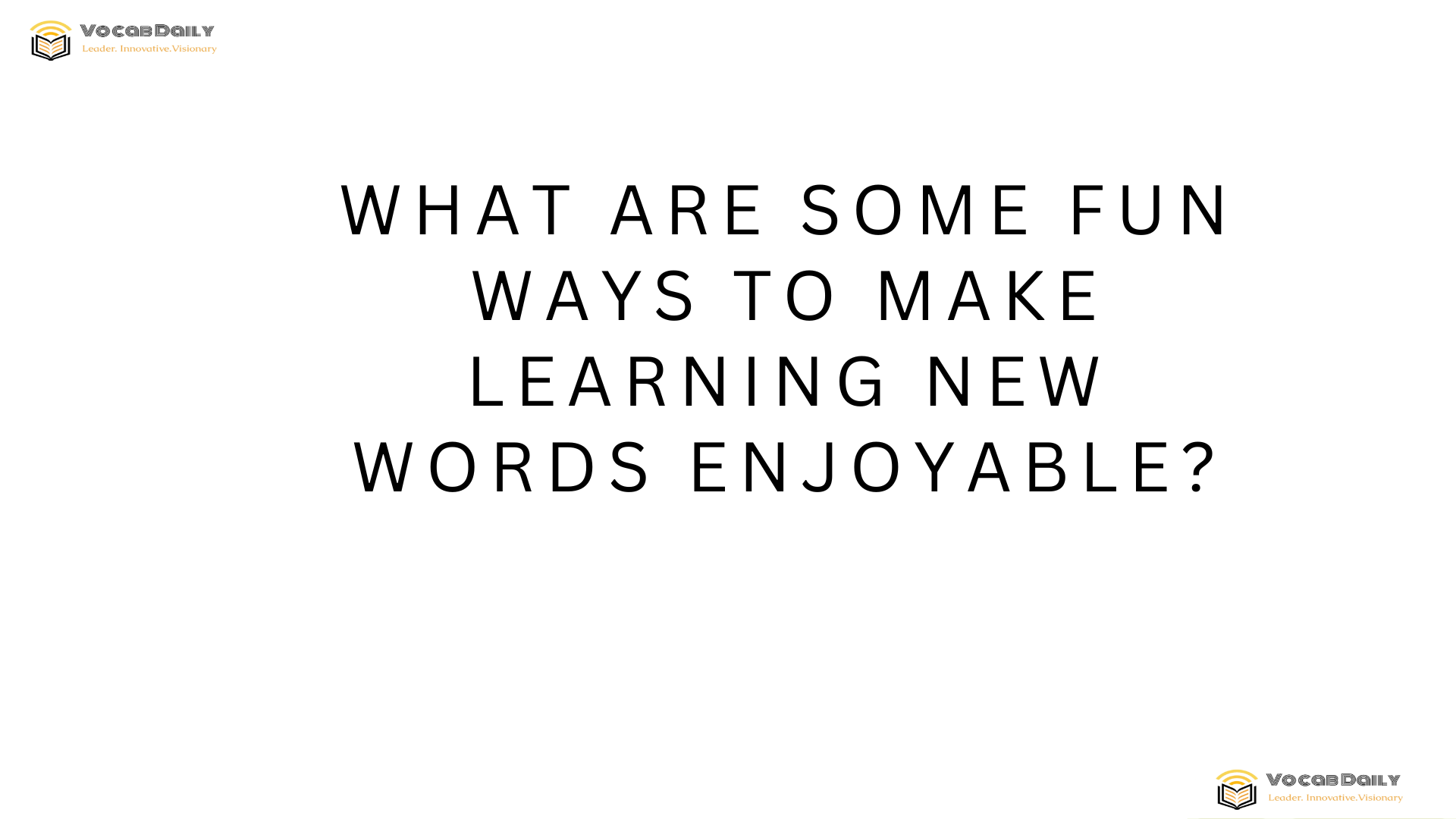What are some fun ways to make learning new words enjoyable
Play Word Games
One of the most engaging ways to expand your vocabulary is through word games. Classics like Scrabble, Boggle, and crossword puzzles challenge you to think creatively and explore unfamiliar words. These games not only provide entertainment but also reinforce spelling, word recognition, and usage in a fun, competitive environment. Mobile apps and online platforms have also made it easier to play these games anytime, allowing for continuous learning on the go.
Use Flashcards with a Twist
Flashcards are a traditional way to memorize new words, but adding playful elements can make the process more enjoyable. For example, create flashcards with colorful images or funny sentences that use the target word. Alternatively, you can turn the flashcard review into a game by timing yourself or competing with friends. Apps that incorporate spaced repetition can also keep your learning efficient and engaging.
Incorporate Words into Daily Conversations
Learning new words becomes more meaningful when you actively use them. Try to include recently learned vocabulary in your everyday chats with friends, family, or colleagues. This practice helps reinforce retention and improves your confidence in using new words. To make it fun, challenge yourself or others to use a “word of the day,” turning everyday conversations into light-hearted vocabulary workouts.
Create a Personal Word Journal
Keeping a word journal can be a creative and rewarding way to track new vocabulary. Write down interesting words you encounter, along with their definitions, example sentences, and even doodles that help you remember their meaning. Over time, this journal becomes a personalized dictionary reflecting your learning journey. To add excitement, set goals like learning five new words per week or writing a short story using the words you’ve collected.
Engage in Themed Vocabulary Challenges
Themed challenges provide focused learning and can make vocabulary building more relevant. For instance, choose a theme like “nature,” “technology,” or “emotions,” and learn related words each day. You can incorporate challenges such as using these words in sentences, finding synonyms and antonyms, or even creating poems. This method adds context, helping you better remember the words and how they relate to real life.
Watch Movies and Listen to Podcasts
Immersing yourself in content rich with diverse vocabulary can enhance your learning naturally. Movies and podcasts expose you to new words and expressions within interesting contexts, making it easier to absorb their meanings. To turn this into an active learning opportunity, pause when you hear an unfamiliar word, look it up, and jot it down. Later, try to use these words in conversations or writing.
Experiment with Word Art and Creative Writing
Combining creativity with vocabulary learning can transform the experience from routine to delightful. Try your hand at writing poems, short stories, or even comic strips using new words. Alternatively, create word art by illustrating the meaning of words or designing word maps that explore synonyms and related concepts visually. This multisensory approach helps deepen understanding and makes vocabulary memorable.
Join Online Word Communities
Connecting with others who share your interest in vocabulary can be motivating and inspiring. Numerous online forums, social media groups, and websites focus on word lovers and language learners. Participating in word challenges, quizzes, and discussions can expose you to varied vocabulary and different learning styles. Moreover, friendly competition and social interaction add an element of fun and accountability to your learning process.
Use Technology to Your Advantage
Modern technology brings a wealth of tools to make vocabulary learning exciting. Apps that gamify language learning often include points, badges, and levels to keep you motivated. Some platforms offer interactive storytelling where you learn vocabulary in context, making words easier to remember. Virtual reality and augmented reality tools are also emerging, providing immersive environments to practice vocabulary dynamically.
Create Mnemonics and Memory Associations
Mnemonics, or memory aids, make it easier to retain challenging words by linking them to familiar concepts or images. For instance, associating the word “gregarious” with a friendly person named Greg can help you recall its meaning of being sociable. Making up funny or quirky connections turns memorization into a playful mental exercise. Sharing mnemonic devices with friends can also spark creativity and deepen your collective vocabulary knowledge.
Also check out VocabDaily workbook collections.

Leave a Reply